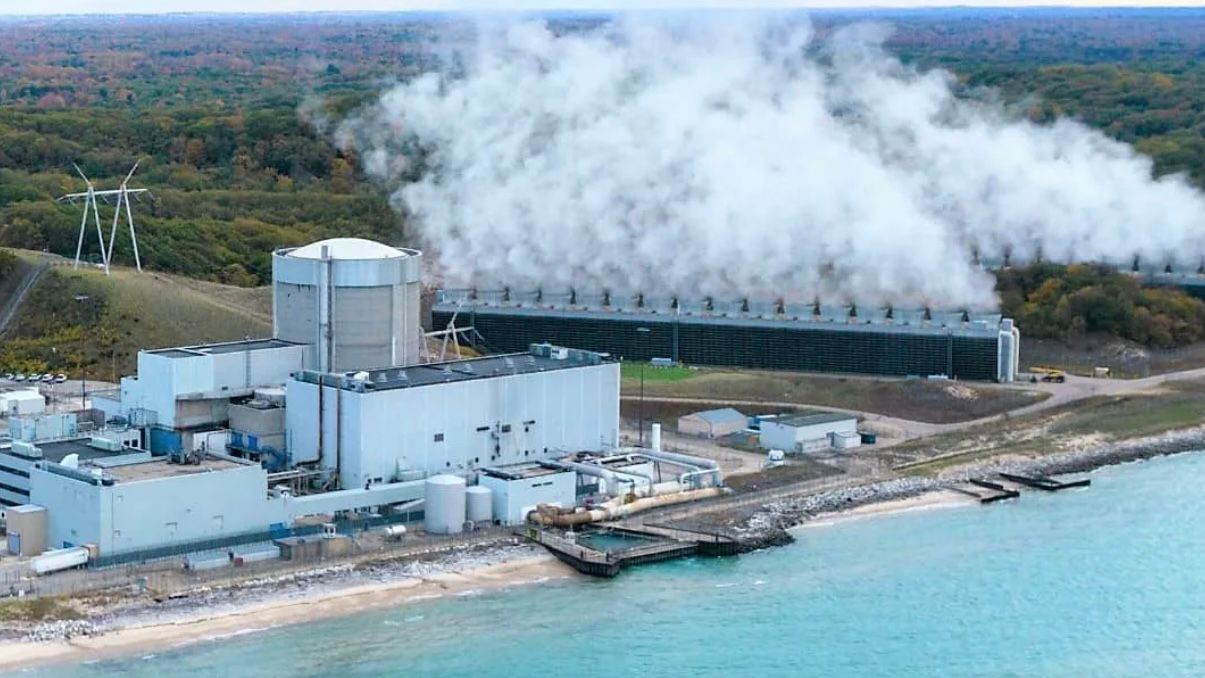Energy Department loans $1.5B to restart Michigan nuclear plant
The Palisades Nuclear Plant stopped operating in 2022 The Department of Energy has offered a $1.5 billion loan to restart a nuclear power plant in Michigan, if successful, it will be the first successfully restarted in U.S. history. The Palisades Power Plant was decommissioned in 2002 due to financial difficulties and was purchased by energy company Holtec International. The loan is offered through the Inflation Reduction Act’s Energy Infrastructure Reinvestment program. The plant is expected to operate through at least 2051 if approved, preventing 111 million tons of carbon dioxide emissions over 25 years. The DOE said the plant could double its electricity output with the addition of two more smaller nuclear reactors. The United States is currently the world's largest producer of nuclear power, generating about 30% of its electricity globally.

Diterbitkan : sebulan yang lalu oleh Susan Carpenter di dalam Environment
The Department of Energy offered a $1.5 billion loan to restart a nuclear power plant in Michigan. The energy company Holtec International bought the decommissioned plant in 2022 and plans to restore it and resume operations by late 2025.
If successful, it will be the first nuclear power plant to be successfully restarted in U.S. history.
“Nuclear power is our single largest source of carbon-free electricity, directly supporting 100,000 jobs across the country and hundreds of thousands more indirectly,” U.S. Energy Secretary Jennifer M. Granholm said in a statement.
The Palisades Power Plant was shuttered two years ago because of financial difficulties. Holtec International purchased the plant in June 2022 — shortly before President Biden signed the Inflation Reduction Act into law.
The Holtec loan is offered through the Inflation Reduction Act’s Energy Infrastructure Reinvestment program, which finances projects to retool, repower, repurpose or replace energy infrastructure that has stopped operating or to enable energy infrastructure that avoids or reduces greenhouse gas emissions.
The Palisades plant will operate through at least 2051 if the Nuclear Regulatory Commission approves licensing. It is expected to prevent 111 million tons of carbon dioxide emissions over 25 years, according to the DOE — the equivalent of taking 970,000 gasoline-powered cars off the road.
The DOE said the Palisades plant could double its electricity output with the addition of two more smaller nuclear reactors that will be financed separately.
The United States is the world’s biggest producer of nuclear power, generating about 30% of what is generated globally, according to the World Nuclear Assn. About 19% of the country’s electricity is generated with nuclear power, according to the U.S. Energy Information Administration. There are currently 54 commercially operating nuclear power plants in the country operating in 28 states.
Still, in 2023, 41 nuclear reactors permanently shut down in the United States — the largest number worldwide. Falling natural gas prices are largely the reason.
Spurring the development of new reactor technologies domestically “is critical to combatting the climate crisis,” according to the DOE. Nuclear power is a cornerstone of the Biden-Harris administration goal of 100% clean electricity generation by 2035.
The 800-megawatt Palisades Nuclear Plant will employ 600 people and generate enough electricity to power 800,000 homes, according to Michigan Gov. Gretchen Whitmer. Once reopened, it will drive $363 million of regional economic impact and help “Michigan lead the future of clean energy,” Whitmer said in a statement.
Whitmer and Granholm were set to visit the Holtec Palisades Training Center on Wednesday to highlight the deal.
Topik: ESG
